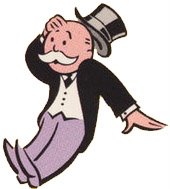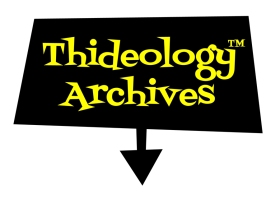George who?
March 28, 2006 Leave a comment
 The NCAA basketball tournament is my favorite sporting event of the year. One of the reasons I love it so much is because small colleges that would otherwise have no chance to compete for a national title are annually invited to join the field of 64 teams. And, while their chances of beating the “big boys” is slim, they have (at least in theory) an opportunity to play their way to the championship.
The NCAA basketball tournament is my favorite sporting event of the year. One of the reasons I love it so much is because small colleges that would otherwise have no chance to compete for a national title are annually invited to join the field of 64 teams. And, while their chances of beating the “big boys” is slim, they have (at least in theory) an opportunity to play their way to the championship.
This rarely happens. The lower-seeded teams usually serve as cannon fodder for the major college teams in the first couple of rounds. Usually they are all but gone by the time the field is whittled down to 16.
Not this year.
Little George Mason University in Fairfax, Virginia is in the Final Four. And they didn’t sneak in via some short cut whereby they played other underdogs who happened to upset better teams. No, the 11th-seeded GMU Patriots beat 3rd-seeded North Carolina and the number one seed in their bracket UConn.
Their success has drawn a lot of attention to this otherwise obscure university just outside of Washington, D.C. It has caused some people to wonder, “Now, just who is this George Mason fellow that they named a college after him?”
 George Mason was one of the men responsible for founding the United States. He is one of the lesser-known founders, but when looking at his resume’ one has to wonder why this is the case.
George Mason was one of the men responsible for founding the United States. He is one of the lesser-known founders, but when looking at his resume’ one has to wonder why this is the case.
Mason served as a delegate from Virginia to the Constitutional Convention. He is the author of the Virginia Declaration of Rights which detail the rights all men. He argued some form of this declaration be included in the Constitution and is largely responsible for the inclusion of the Bill of Rights. In fact, he is sometimes referred to as the “Father of the Bill of Rights.”
During the debates at the Constitutional Convention Mason ultimately sided with the anti-federalists and refused to sign the newly drafted Constitution. He argued it did not provide sufficient protection to individual liberty from federal government usurpation. His foresight has been near prophetic.
How appropriate that the school which bears his name is playing the role of giant killer in this year’s tournament. Here’s wishing GMU well in the Final Four…more “big boys” are waiting.










